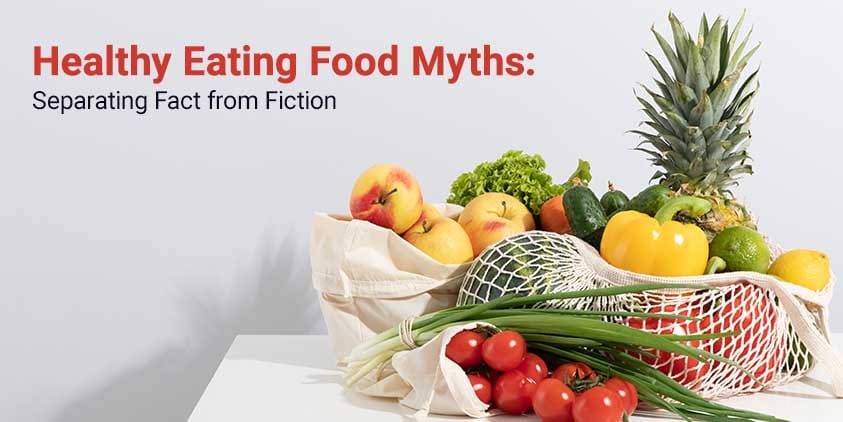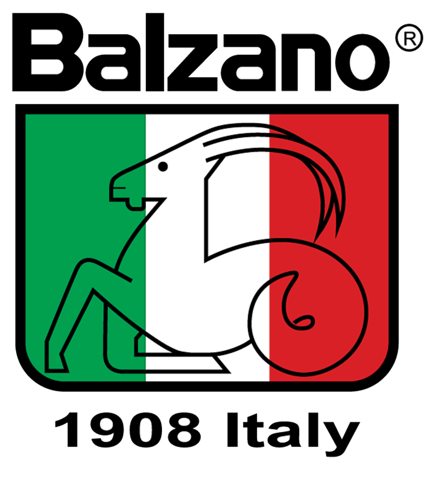HEALTHY EATING FOOD MYTHS: SEPARATING FACT FROM FICTION

In today's health-conscious society, there is a wealth of information available about healthy eating. However, not all of it is accurate or evidence-based. As a result, many myths and misconceptions have emerged, causing confusion and leading people astray in their quest for a nutritious diet. In this blog post, we will debunk some common healthy eating food myths and provide you with the truth backed by scientific evidence.
Myth 1: All Fats are Unhealthy:
One of the biggest misconceptions is that all fats are bad for you. The truth is that fats are an essential part of a balanced diet and are crucial for various bodily functions. Healthy fats, such as those found in avocados, nuts, seeds, and olive oil, are beneficial for heart health, brain function, and nutrient absorption. It is the unhealthy trans fats and excessive consumption of saturated fats that should be limited.
Myth 2: Carbohydrates Should Be Avoided:
Carbohydrates have received a bad reputation in recent years, with many popular diets promoting low-carb or no-carb approaches. However, not all carbohydrates are created equal. Whole grains, fruits, vegetables, and legumes are excellent sources of complex carbohydrates that provide essential nutrients, fiber, and sustained energy. The key is to choose unrefined, minimally processed carbohydrates and consume them in moderation.
Myth 3: Skipping Meals Helps with Weight Loss:
Some believe that skipping meals, particularly breakfast, can aid in weight loss. However, research has shown that regular and balanced meals throughout the day are essential for maintaining a healthy weight. Skipping meals can lead to overeating later in the day and a potential imbalance in nutrient intake. Instead, focus on portion control, eating a variety of foods, and incorporating regular exercise for sustainable weight management.
Myth 4: Organic Foods are Always Healthier:
While organic foods have gained popularity due to their reduced pesticide exposure, it is important to note that not all organic foods are inherently healthier. Organic cookies or chips are still cookies and chips, regardless of the ingredients being organic. The key to a healthy diet is to focus on whole, unprocessed foods, whether they are organic or conventionally grown.
Myth 5: All Supplements are Necessary for Optimal Health:
In recent years, the supplement industry has boomed, and many people believe that taking a multitude of supplements is necessary for good health. While some individuals may have specific nutrient deficiencies or unique dietary needs, the majority of people can obtain all the necessary nutrients through a balanced diet. Supplements should only be taken under the guidance of a healthcare professional to address specific deficiencies or health conditions.
Myth 6: Fresh Produce is Always Superior to Frozen:
Fresh fruits and vegetables are often considered the gold standard, but frozen produce can be just as nutritious, if not more so. Frozen fruits and vegetables are typically picked at their peak ripeness and flash-frozen, preserving their nutritional value. Fresh vegetables, on the other hand, may lose nutrients during shipping and storage. Both fresh and frozen options can be included in a healthy diet, based on personal preferences and availability.
Myth 7: All Sugar is Equally Harmful:
Sugar has come under scrutiny for its association with various health problems, such as obesity and diabetes. While it's true that excessive sugar consumption can be detrimental to health, not all sugars are created equal. Naturally occurring sugars in fruits and dairy products come packaged with essential nutrients and fiber, making them a healthier choice. It's the added sugars in processed foods and beverages that should be limited as they provide empty calories and contribute to health issues.
Myth 8: Going Gluten-Free is Beneficial for Everyone:
Gluten-free diets have gained popularity, with many people believing that it is inherently healthier for everyone. However, unless you have celiac disease or a diagnosed gluten sensitivity, avoiding gluten is unnecessary and may even lead to nutrient deficiencies. Whole grains that contain gluten, such as wheat, rye, and barley, are important sources of fiber, vitamins, and minerals. If you suspect a gluten intolerance, it's best to consult a healthcare professional for proper evaluation and guidance.
Myth 9: Egg Yolks Should be Avoided:
For years, egg yolks were shunned due to their high cholesterol content. However, research has shown that dietary cholesterol has a minimal impact on blood cholesterol levels for most people. Eggs are highly nutritious, packed with protein, vitamins, minerals, and healthy fats. The yolk contains essential nutrients like choline, which is important for brain health. Unless you have a specific dietary restriction, enjoy eggs in moderation as part of a balanced diet.
Myth 10: All Processed Foods are Unhealthy:
While it's true that many processed foods are unhealthy, it's important to understand that not all processed foods fall into the same category. Processing can range from minimal methods like washing and packaging to more extensive methods like adding preservatives or altering the composition of food. Some processed foods, such as canned beans, frozen vegetables, or plain yogurt, can be part of a healthy diet. The key is to read labels, choose minimally processed options, and prioritize whole, unprocessed foods whenever possible.
Myth 11: Detox Diets Cleanse the Body:
Detox diets and cleanses have gained popularity, promising to rid the body of toxins and promote weight loss. However, the body has its own built-in detoxification systems, primarily the liver and kidneys. There is limited scientific evidence to support the effectiveness of detox diets, and in some cases, they can be restrictive, lacking in essential nutrients, and potentially harmful. Instead, focus on nourishing your body with a balanced diet, staying hydrated, and engaging in regular physical activity to support natural detoxification processes.
When it comes to healthy eating, it is important to separate fact from fiction. By debunking common food myths, we can make informed choices and adopt sustainable dietary habits. Remember to focus on a balanced diet, incorporating a variety of whole foods, and seeking guidance from healthcare professionals or registered dietitians when needed. By embracing evidence-based practices, we can nourish our bodies and achieve optimal health.
Leave a Comment
Popular Posts
Est. in 1908 in Italy, Balzano has evolved as a quality brand over last 110+ years. With Italian craftsmanship and Italian design team we wish to fill our customers life with healthy living, style and convenience globally.
MATRIX TRADE CONNECT LLP
Paradise cinema, 1ST Floor, Plot 305, Delta Apt, LJ Road,
Mahim West, Mumbai,
Maharashtra 400016
IN





0 Comment